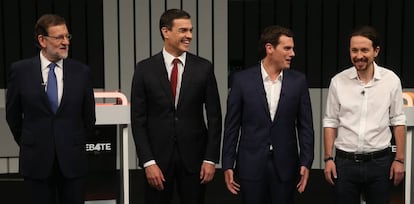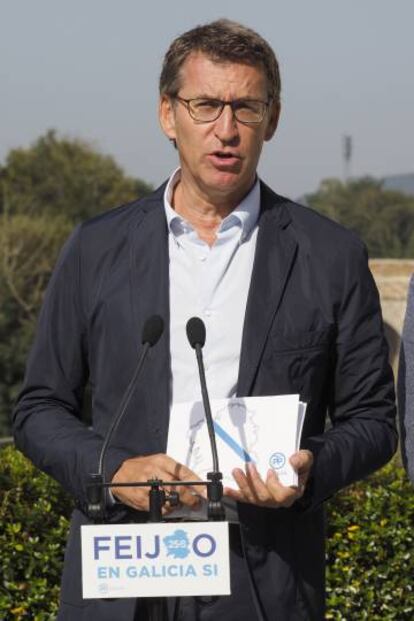Spain hopes Basque and Galicia elections will break political deadlock
Leaders of four main Spanish parties will hold numerous rallies in both regions over the next two weeks in a bid to reinforce their own national agendas

The campaign for regional elections in Galicia and the Basque Country kicked off on Thursday night, with Spanish voters hoping that the results of the polls will help resolve an eight-month political impasse.
The leaders of Spain’s four major parties will use the regional campaign to advance their own national agendas through numerous public appearances. Strategists for the Popular Party (PP), Socialist Party (PSOE), Podemos and Ciudadanos (C’s) feel that September 25 will be a turning point in the stalled negotiations to form a government in Spain.
Rajoy is still hoping that Sánchez will be pressured into supporting him one way or another in order to avoid a record third general election in Spain
Mariano Rajoy (PP), Pedro Sánchez (PSOE), Pablo Iglesias (Podemos) and Albert Rivera (C’s) will visit both regions repeatedly over the next two weeks in a bid to make the most of the media exposure.
Acting Prime Minister Mariano Rajoy, who recently submitted his own name for reinstatement but failed to secure enough congressional support, is hoping that a strong victory by the incumbent Galician premier, Alberto Núñez Feijóo of the PP, will provide added backing for his own aspirations to return to La Moncloa. In the Basque Country, the best he can hope for is that nationalists will turn to the PP if they need allies to form a government.
Meanwhile, Socialist leader Pedro Sánchez knows that the outcome of the Galicia election could undermine his own national leadership, if polls are right and the PP wins an absolute majority in the northwestern region. Forecasts are not good for the PSOE in either region.

At their last bilateral meeting, which lasted a mere 30 minutes, Sánchez told Rajoy that he would not help him return to power, either by actively voting for him or by abstaining at the investiture vote. The Socialist said that he wanted to wait to see the results of the regional elections, “and then we’ll see.”
Rajoy is still hoping that Sánchez will be pressured into supporting him one way or another in order to avoid a record third general election in Spain that would take place on a highly impopular day, December 25.
The anti-austerity Podemos is hoping to prove that only an alliance of leftist forces has the ability to dislodge the PP from power in Galicia, and same with the Basque Nationalist Party (PNV) in the Basque Country. Such an outcome would reinforce Pablo Iglesias’ idea for a similar alliance to form an alternative government at the national level, given that the most-voted party at the June general election, the PP, has failed to attract enough allies to form a majority of its own.
As for Ciudadanos, the emerging party needs to preserve its image as a key player with the ability to influence the PP and PSOE’s policies, even though polls say that it will not manage a single representative in Galicia, and one at the most in the Basque Country. Its leader, Albert Rivera, has alternately sided with the PSOE and the PP at the national level in a bid to reach a congressional majority and form a government, but its 32 national deputies are insufficient to do so and support from third parties is required.
English version by Susana Urra.









































